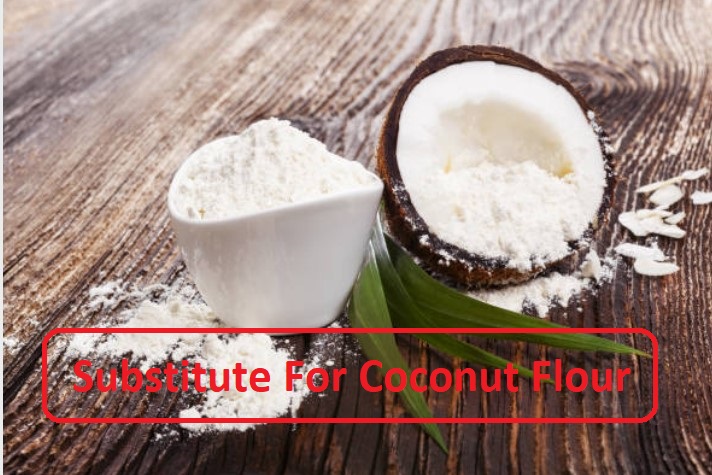
Coconut flour is a great gluten-free, high-quality flour alternative for people with food allergies. However, it can be costly and difficult to locate in retailers. Luckily, there are several substitutes for coconut flour that you can make at home with ingredients you probably already have in your kitchen.
These substitutes work well in recipes that call for coconut flour and will give you the same results as if you were using the real thing. Keep reading to learn more about these alternatives and how to use them in your own recipes.
Table of Contents
What is Coconut Flour?
Coconut flour is a sort of flour that is manufactured from dried and powdered coconut meat. It is a gluten-free alternative to wheat flour and has a slightly sweet, nutty flavor. Coconut flour is high in fiber and protein, making it a healthy option for baking and cooking.
It can be used in place of wheat flour in many recipes, or as a natural thickener for soups and sauces. Pancakes, bread, muffins, and other baked items can all be made with coconut flour. It is also a popular ingredient in Paleo and low-carb recipes.
Why Would You Want To Avoid It?
Coconut flour is a healthy alternative to other types of flour, but there are some disadvantages to using it.
a. High in calories and fat
One disadvantage is that it is high in calories and fat. This means that if you are trying to lose weight, or watch your calorie intake, then you should avoid using coconut flour.
b. Difficult to work with
Another drawback is that it might be challenging to work with. It can be very dry and crumbly, so it is important to make sure that you add enough moisture to your recipes when using this type of flour.
Coconut flour is very dense and absorbent, so it can be difficult to get the right consistency when baking with it. It’s also important to note that coconut flour doesn’t rise like other kinds of flour, so your baked goods may not be as fluffy as you’re used to.
c. Not always produce consistent results
Finally, coconut flour does not always produce consistent results. Sometimes the flour can be too dense or too light, so it is important to experiment with different brands and types of flour before settling on one for your baking needs.
List 10 Substitute For Coconut Flour
Coconut flour is a healthy alternative to traditional flour, but it can be hard to find and expensive. Here are 10 substitutes for coconut flour picks that you can use in your baking recipes.
1). Almond Flour
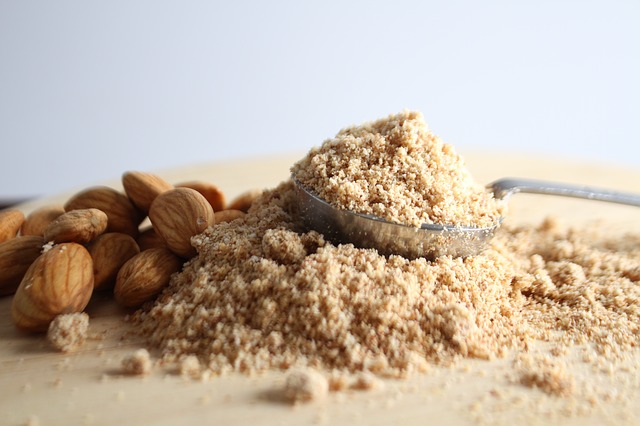
Almond flour is a nutritious option with a similar texture to coconut flour. It’s perfect for baked goods like cookies, cakes, and muffins.
2). Arrowroot Powder
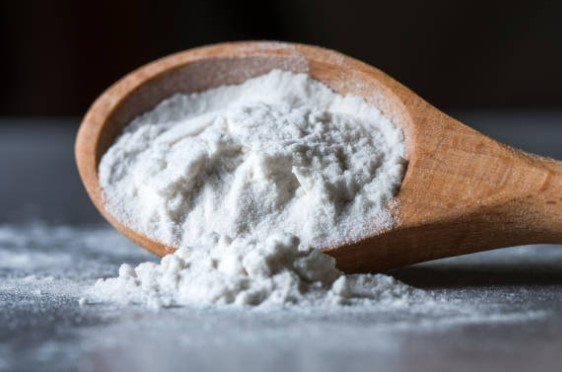
Arrowroot powder is a starchy substance that works well as a thickener in sauces and soups. It can also be used as a 1:1 replacement for coconut flour in recipes.
3). Buckwheat Flour
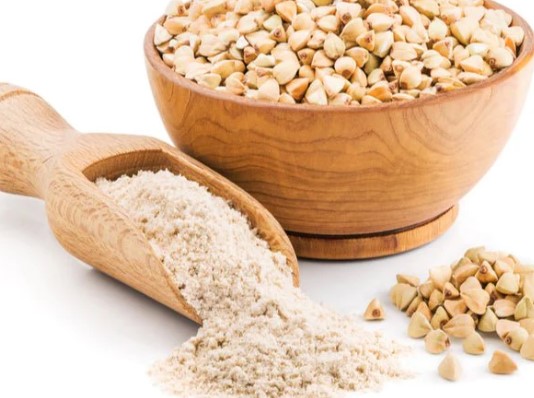
Buckwheat flour has a nutty flavor and is manufactured from the seeds of the buckwheat plant. It can be used in place of coconut flour, but the results will be slightly denser.
4). Chickpea flour
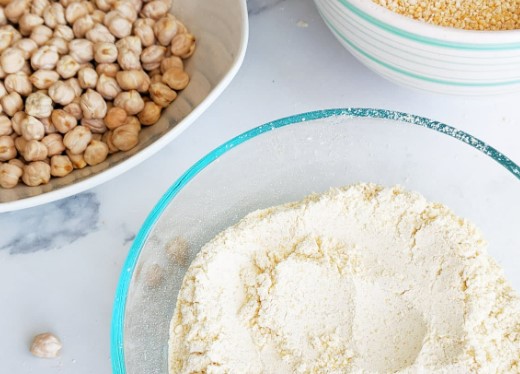
Chickpea flour is made from ground chickpeas and has a slightly sweet flavor. It works well as a replacement for coconut flour in baking recipes and can also be used to make savory dishes like pancakes and fritters.
5). Flaxseed Meal

Flaxseed Meal is strong in omega-3 fatty acids and fiber. It can be used as a binding agent in baking recipes or added to smoothies and yogurt for extra nutrition.
6). Oat Flour
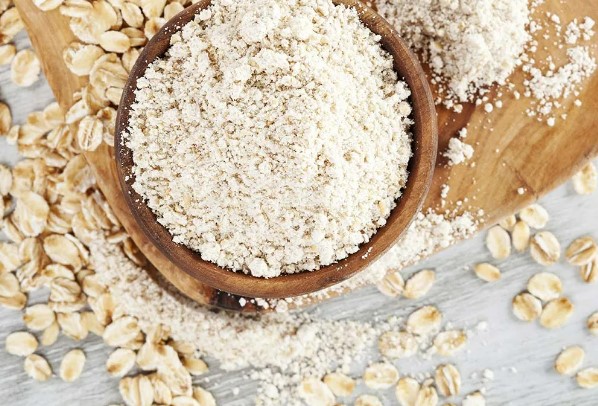
Grinding oats into a fine powder produces oat flour. It’s a great alternative to coconut flour and can be used in baking or cooking.
7). Potato Starch

Potato starch is a gluten-free option that can be used as a thickener or binding agent in recipes. It’s also a good choice for those with allergies to wheat or other grains.
8). Rice Flour
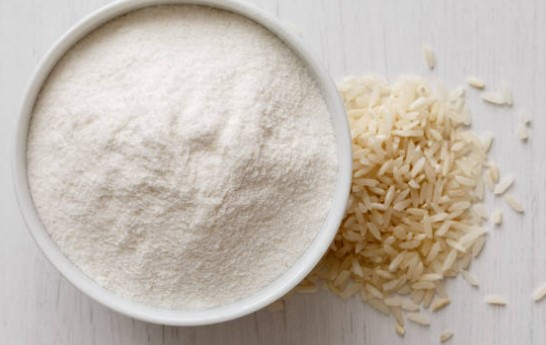
Rice flour is made from ground rice and has a slightly sweet flavor. It’s perfect for baked goods like cakes, cookies, and muffins.
9). Sorghum Flour
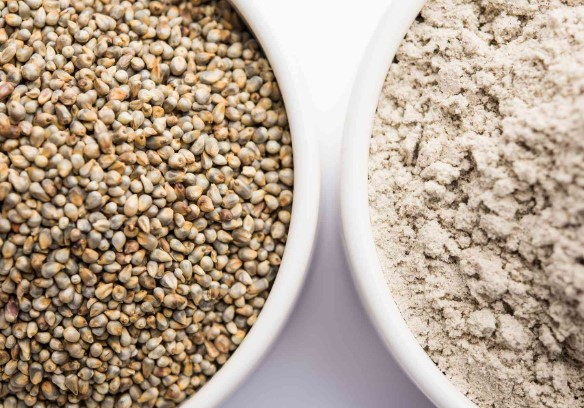
Sorghum flour is made from the grain of the sorghum plant and has a nutty flavor. It can be used in place of coconut flour, but the results will be slightly denser.
10). Tapioca Flour
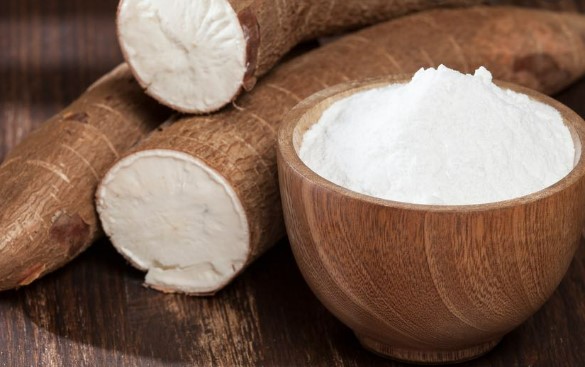
Tapioca flour is a mildly sweet flour derived from cassava root. It’s a good choice for gluten-free baking and can also be used to thicken sauces and soups.
The Health Benefits Of Using Substitutes For Coconut Flour
If you’re looking for a healthier alternative to coconut flour, you’ll be pleased to know that there are several substitutes that can offer similar health benefits. While coconut flour is high in fiber and low in carbohydrates, it can also be high in calories and fat.
If you’re watching your weight or trying to lower your cholesterol, you may want to consider using one of the following substitutes for coconut flour.
A source of protein and vitamin E
Almond flour is a popular substitute for coconut flour as it is also high in fiber and low in carbohydrates. However, almond flour is lower in calories and fat than coconut flour. This makes it an ideal choice for those on a diet or looking to lose weight. In addition, almond flour is a good source of protein and vitamin E.
Lower calorie content
Oat flour is another healthy substitute for coconut flour. Like almond flour, oat flour is high in fiber and low in carbohydrates. Oat flour is also a good source of protein and has a lower calorie content than coconut flour. This makes it an ideal choice for those on a diet or trying to lose weight.
A good source of vitamins B1 and B2
Rice flour is another option that can be used as a substitute for coconut flour. Rice flour is higher in carbohydrates than both almond and oat flour but is lower in calories. This makes rice flour a good choice for those who are watching their weight or trying to lower their cholesterol. In addition, rice flour is a good source of vitamins B1 and B2.
High in carbohydrates
Tapioca flour is another substitute that can be used in place of coconut flour. Tapioca flour is made from the starch of the cassava root and is high in carbohydrates. However, tapioca flour is lower in calories than coconut flour and is a good source of fiber. This makes it an ideal choice for those on a diet or trying to lose weight.
How To Make A Simple Substitute For Coconut Flour That Is Healthier And Just As Delicious?
If you’re looking for a coconut flour substitute, look no further than this simple guide. With just a few ingredients, you can easily make your own coconut flour at home.
What You’ll Need:
- 1 cup of almond meal
- 1/4 teaspoon baking soda
- 1/4 teaspoon salt
Instructions:
1. Preheat your oven to 350 degrees Fahrenheit.
2. Line a baking sheet with parchment paper and spread the almond meal on it in an even layer.
3. Bake for 10 minutes, or until the meal is lightly toasted.
4. Allow the meal to cool completely before proceeding.
5. Add the baking soda and salt to the cooled almond meal and stir to combine.
6. Transfer the mixture to a food processor or high-powered blender and pulse until it forms a fine powder.
7. Sift the powder through a fine-mesh sieve to remove any clumps.
8. Store the coconut flour in an airtight container at room temperature for up to 6 months.
Recipes That Use Substitutes For Coconut Flour So You Can Start Cooking Healthy Today!
With these things in mind, here are five recipes that use substitutes for coconut flour:
Banana Bread
This banana bread recipe uses almond flour and flaxseed meal as substitutes for coconut flour. The result is a moist and delicious loaf of bread that is perfect for breakfast or snacks.
Chocolate Cake
This chocolate cake recipe uses cocoa powder and ground almonds as substitutes for coconut flour. The result is a rich and moist cake that is perfect for any occasion.
Pancakes
These pancakes use oat flour and almond meal as substitutes for coconut flour. They are light and fluffy and make a great breakfast or snack.
Waffles
These waffles use wheat flour and ground flaxseed as substitutes for coconut flour. They are crispy on the outside and fluffy on the inside, making them a perfect choice for breakfast or brunch.
Cookies
These cookies use almond flour and tapioca starch as substitutes for coconut flour. They are chewy and delicious and make a great snack or dessert.
Brownies
These brownies use almond flour and cocoa powder as substitutes for coconut flour. They are fudgy and moist and make a great dessert or snack.
Pie crust
This pie crust recipe uses almond flour and tapioca starch as substitutes for coconut flour. The result is a flaky and delicious crust that is perfect for any type of pie.
Biscuits
These biscuits use self-rising flour and buttermilk as substitutes for coconut flour. They are light and fluffy and make a great addition to any meal.
Related: Top 6 Best Biscuit Cutters Buying Guide & Review
Some Tips To Use Coconut Flour
Coconut flour is a great alternative to traditional wheat flour. It is high in fiber and protein and low in carbohydrates. Coconut flour can be used in many recipes as a replacement for wheat flour. Here are some tips for using coconut flour:
1. When baking with coconut flour, it is important to add an extra egg to the batter. This will help to bind the ingredients together and make the final product more sturdy.
2. When using coconut flour as a replacement for wheat flour, you may need to use less than the recipe calls for. Start with ¼ cup of coconut flour and increase from there until you reach the desired consistency.
3. Coconut flour can be used in place of bread crumbs in many recipes. Simply add the coconut flour to the wet ingredients and then coat the food in it before cooking.
4. Coconut flour can also be used to thicken soups and sauces. Simply add a spoonful or two to the desired consistency.
5. Store coconut flour in an airtight container in a cool, dry place. It can last up to six months when stored properly.
FAQS About The Substitute For Coconut Flour
Refer to the commonly asked questions below to find out the substitute for coconut flour.
1). How can I use substitutes for coconut flour?
There are many ways that you can use a substitute for coconut flour. You can use it in baking recipes, as a thickener for soups or sauces, or even as a replacement for breadcrumbs in recipes.
2). What are the benefits of using a substitute for coconut flour?
There are a few benefits to using a substitute for coconut flour. One benefit is that it is lower in calories than traditional flour. Another benefit is that it is gluten-free, so it is perfect for those with celiac disease or gluten sensitivities.
3). Are there any downsides to using a substitute for coconut flour?
The only downside to using a substitute for coconut flour is that it can be a bit more expensive than traditional flour. However, the benefits outweigh the cost for many people.
4). What should I look for in a substitute for coconut flour?
When looking for a substitute for coconut flour, the most important thing to consider is your needs. If you need gluten-free flour, tapioca flour or arrowroot flour are good options. If you need low-carbohydrate flour, almond flour is a good option.
5). How do I store a substitute for coconut flour?
A substitute for coconut flour can be stored in a cool, dry place for up to six months.
Conclusion
Coconut flour is a great option for those looking to reduce their carbohydrate intake or follow a paleo diet, but it can be difficult to find in stores. If you’re looking for an alternative, our almond flour may be the perfect fit for you. Almond flour is made from blanched almonds that have been ground into a fine powder, making it a good source of protein and fiber.
It also has a mild flavor that pairs well with both sweet and savory recipes. Order your bag of almond flour today and see how you can incorporate this versatile ingredient into your favorite dishes. Almond flour is easy to find in most grocery stores and offers many of the same health benefits as coconut flour. Give this substitute for coconut flour a try in your next baking recipe!
See also:
Leave a Reply